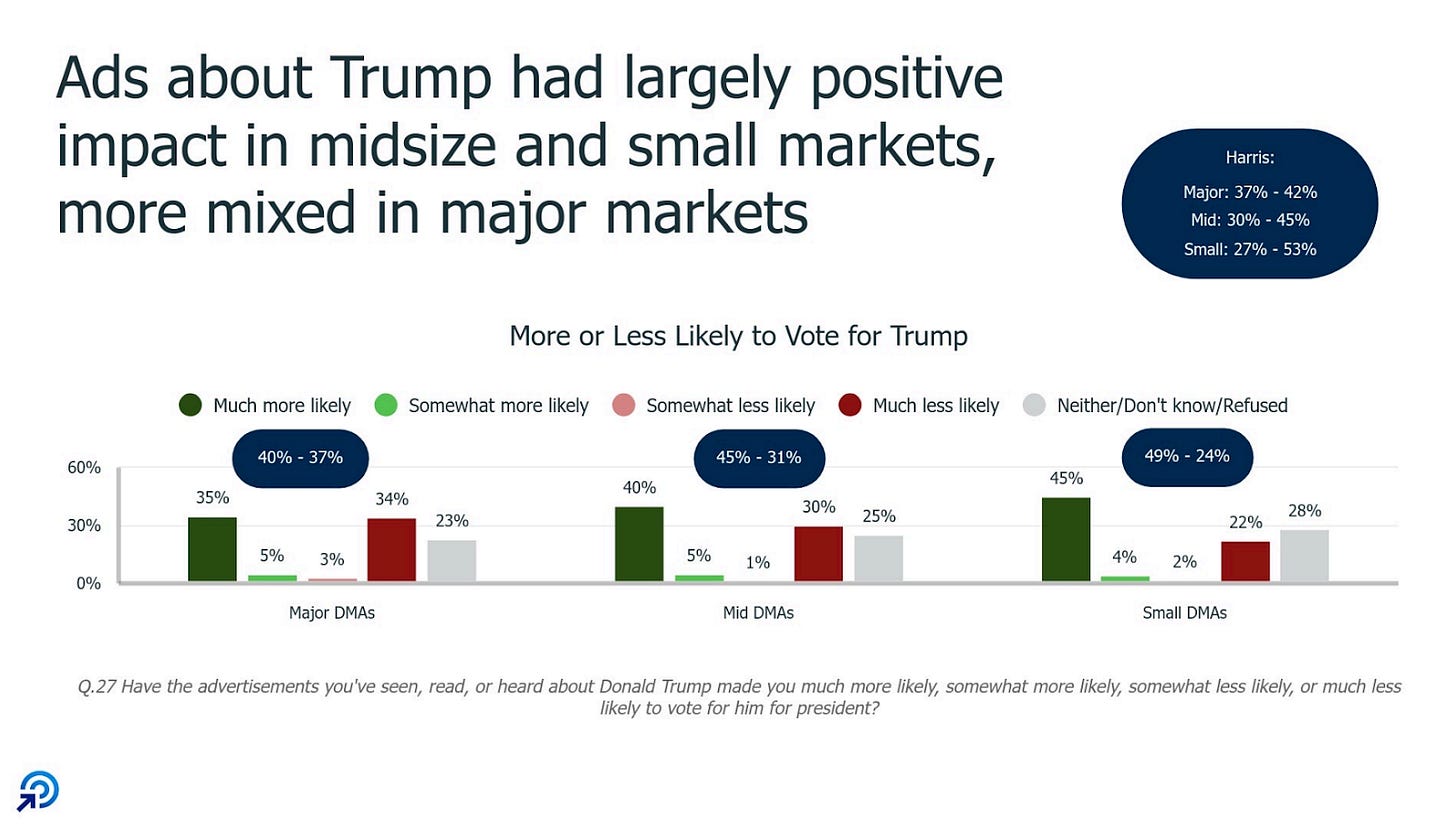How to Burn a Billion Dollars
Conventional wisdom and several studies all lead to the conclusion that the best time to spend goo-gobs of advertising dollars is during the last months of a campaign…
Not so much, it seems.
PSG Consulting LLC, with Hart Research and TargetSmart, looked at this question in two distinct ways. The Hart team surveyed swing voters in battleground states, while TargetSmart surveyed registered voters in three types of battleground media markets — major markets, mid-sized markets and markets covering two states, one a battleground and one not.
Both studies used a unique survey design in that a substantial portion of the questions were open-ended. We wanted to determine what voters were experiencing, what they were processing and what they remembered from the tsunami of ads run during the last few months of the election season.
Voters saw candidates’ ads for President, Senate, Congress, Governorships and other statewide races — the mix of which was dependent upon the state.
In both studies, over 90% of those surveyed remembered seeing presidential and other ads.
What did voters remember when asked an open-ended question? Both swing and registered voters remembered the negative tenor of the ads, particularly as they related to the presidential campaign.
Only 7% of registered voters remembered any policy-focused ads.
One of the most stunning findings was that the ads about Vice President Harris — both positive and negative — sponsored by third parties, the Harris campaign and the Trump campaign had an overall negative impact on vote choice among registered voters.
In other words, these voters were less likely to vote for Harris after seeing the totality of the ads.
Among swing voters, the ads about Harris did have a positive effect, and her economic messages broke through.
The Trump ads had a somewhat mixed effect, particularly depending on the size of the media market. Trump’s messages on immigration and the economy strongly broke through to voters. The immigration ads had a particularly strong impact on voters’ views of Harris. This message moved voters away from her.
What does this tell us?
New strategies are needed.
One that might be considered is opportunistic communications. For example, Elon Musk — an unelected, uninformed and irresponsible billionaire — tried to shut down the federal government during Christmas in a Dickensian move. Almost all the little scrooges in the Republican party followed suit in an attempt to forfeit the future for millions of others. They finally agreed upon a continuing resolution, but Republicans and Speaker Johnson lost a lot — their Democratic colleagues now know that they cannot trust Republican members of Congress to keep their word, honor agreements or govern responsibly.
Democrats should respond with a concerted communications campaign, reminding voters who is responsible for trying to make it harder to pay for food or heat or a small stocking stuffer for their loved ones and children.
Resources should be spent to inform voters all year round during appropriate moments. And, every time the Republicans choose their wealthy friends over working people, children, the aged, students and other regular Americans, these stories should be told.
Donald Trump, Mike Johnson and Fox News talking heads tried to define this as a failure of the Democrats and President Biden. We can no longer afford to tolerate their false facts promoted through a powerful communications ecosystem without engaging in these definitional fights ourselves.
Download the research here.







